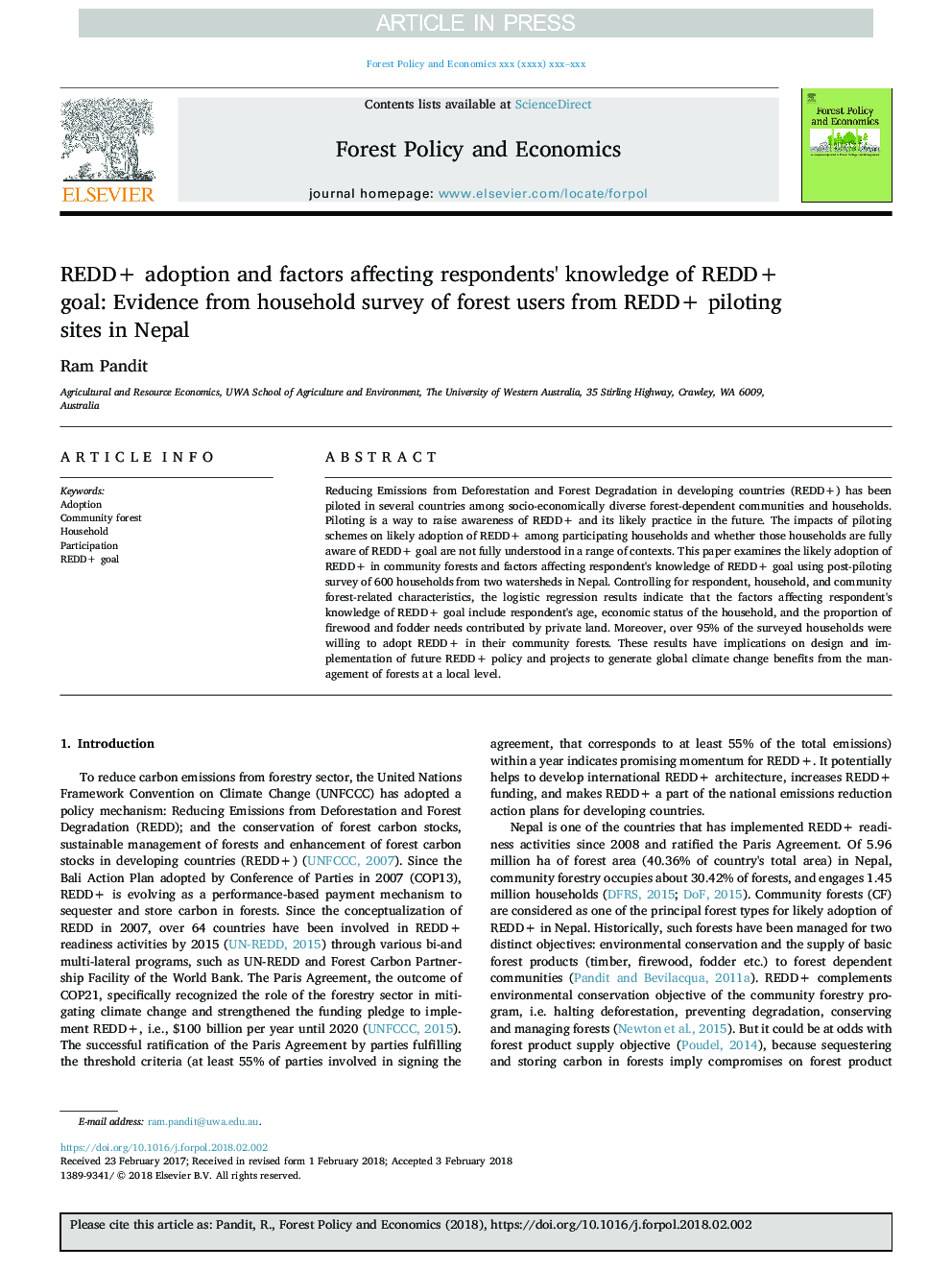| Article ID | Journal | Published Year | Pages | File Type |
|---|---|---|---|---|
| 6544763 | Forest Policy and Economics | 2018 | 9 Pages |
Abstract
Reducing Emissions from Deforestation and Forest Degradation in developing countries (REDD+) has been piloted in several countries among socio-economically diverse forest-dependent communities and households. Piloting is a way to raise awareness of REDD+ and its likely practice in the future. The impacts of piloting schemes on likely adoption of REDD+ among participating households and whether those households are fully aware of REDD+ goal are not fully understood in a range of contexts. This paper examines the likely adoption of REDD+ in community forests and factors affecting respondent's knowledge of REDD+ goal using post-piloting survey of 600 households from two watersheds in Nepal. Controlling for respondent, household, and community forest-related characteristics, the logistic regression results indicate that the factors affecting respondent's knowledge of REDD+ goal include respondent's age, economic status of the household, and the proportion of firewood and fodder needs contributed by private land. Moreover, over 95% of the surveyed households were willing to adopt REDD+ in their community forests. These results have implications on design and implementation of future REDD+ policy and projects to generate global climate change benefits from the management of forests at a local level.
Related Topics
Life Sciences
Agricultural and Biological Sciences
Forestry
Authors
Ram Pandit,
